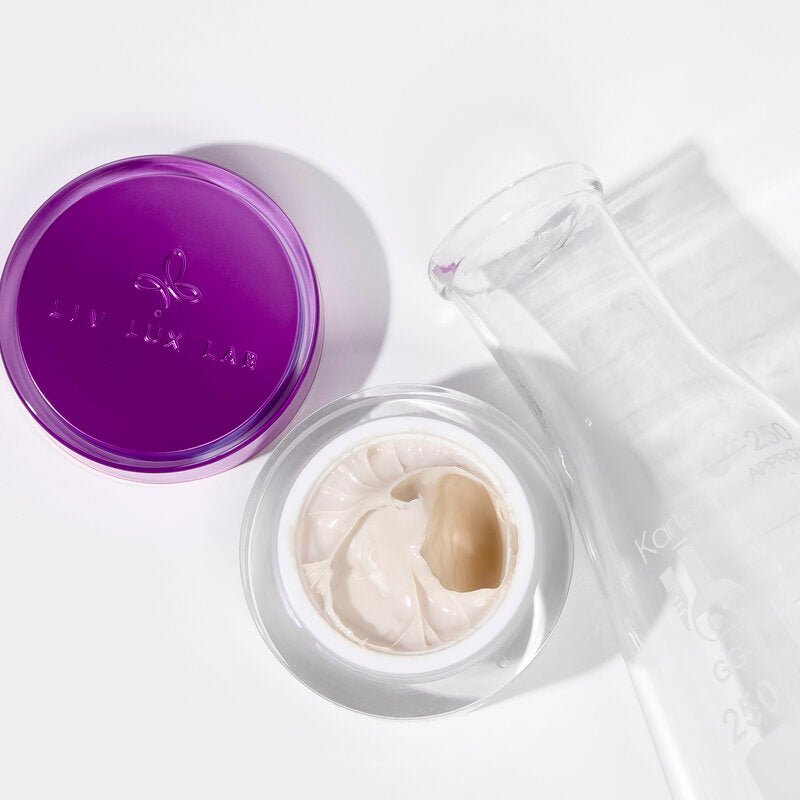Did you know problems with your hair such as hair loss, dullness and breakage can be a sign of your overall health? Research has shown that changes in hair's look. texture, or thickness can be signs of underlying issues which can be caused by stress, nutritional deficiencies, thyroid problems, including hair loss are clues pointing to your overall health. Keep reading to learn how you can tell whether your hair changes are due to a health problem, genetics, stress, or a nutrient deficiency.

1.) Stress + Genetics Can Cause Your Hair to Gray Pre-Maturely
Hair turning gray is totally a natural part of the aging process, however pre-mature graying can be signs of high stress levels or oxidative stress, causing the hair follicles to produce less color, eventually turning silver or white. Genes can play a role when your hair turns gray, and in this study published in 2016 was the first to identify the gene responsible for hair graying.
Rising levels of cortisol (the stress hormone) has been show to have an affect on hair color and it's pigment, leading to hair turning gray pre-maturely. A study on mice published in the journal of Nature suggested that chronic stress may contribute to fraying hair caused by DNA damage and reducing the supply of pigment-producing cells in hair follicles. In addition, oxidative stress (when free radicals inhibit the body's repair process + damages cells) may affect pigment-producing cells in hair follicles.

2.) Hair Thinning Could Be A Sign of Thyroid Problems
Hyperthyroidism and hypothyroidism are both conditions where the thyroid glands over or under produce thyroid hormones, which regulate mood, body weight, metabolism, growth and development. With the thyroid disorders you might notice symptoms such as tiredness, cold intolerance, joint pain, muscle pain, a puffy face and weight gain.
In addition, you might notices issues in the hair such as an increase in hair shedding, changes in the hair's appearance and density. These thyroid disorders also put you at risk for an autoimmune hair-loss condition, called alopecia areata, causing round patches of sudden hair loss and is caused by the immune system attacking the hair follicles.

3.) Brittle Hair + Slow Hair Growth Can Be A Result of Chronic Stress
Weak, thin and brittle hair that is slow to grow can be a sign of high amounts of stress (cortisol, the body's primary stress hormone) in the body. During long periods of stress, or chronic stress, may cause hair to grow slower than normal, and more susceptible to breakage making hair look and feel brittle. Managing stress is not only critical to hair health, but also for promoting a healthier + fulfilling quality of life.
Finding ways to positively handle stress such as meditation, exercise, yoga, and taking time for self-care will help manage stress and avoid chronic issues from stress.
A great way to speed up the hair growth process is to stimulate the scalp with a scalp massage to promote the growth of hair by providing necessary nutrients. Rub a high-quality scalp treatment between your finders to warm it up, and gently massage into the scalp in circular motions for about 10 minutes, and wash the treatment out in the shower with a shampoo + deep conditioner.

4.) Increased Hair Shedding Could Be A Sign of Anemia
If you notice an increase in hair shedding in your hairbrush or on your shower floor, this can be a sign that your body is low in iron or anemia. Those that follow vegetarian + vegan diets, or women who have heavy periods, are likely to have hair changes due to low iron levels in the body. Although it is not completely known why iron can cause hair loss, iron is a critical nutrient for many biological and chemical reactions, including hair growth. However, it is important to get testing to see if your body is iron deficient, as too much iron in the body can cause serious issues if iron levels are too high in the body. If your doctor determines you have an iron deficiency that may be causing hair loss and shedding, eating more foods that are high in iron, or taking an iron supplement, might help with reducing hair loss and shedding.

5.) Hair Thinning Could Indicate A Protein Deficiency
Protein is an essential nutrient for hair's health and it's growth, and a lack of protein has been linked to hair thinning and even hair loss. Most adults require 0.36 grams of protein per pound of body weight. Quality protein sources include nonfat Greek yogurt, chicken breast, nuts and legumes.
6.) Yellow or White Flakes Could Be A Sign Of Scalp Problems
Flakes on your scalp and hair may be a sign of scalp irritation that could be dandruff, a chronic scalp condition. Dandruff usually doesn't indicate a serious health problem, but this chronic inflammation on the scalp can be an issue when it comes to hair growth. Dandruff can be treated with over-the-counter shampoos or a shampoo prescribed by your doctor to treat and prevent dandruff from occurring.

7.) Damaged Hair Can Mask Other Health Related Issues
Although issues arising from health conditions show in our hair, many hair concerns such as breakage and dryness are damage done to the hair by coloring and heat-treating hair making it hard to manage + maintain. Reducing the frequency of hair coloring and heat styling may help in recovering hair from damage, however using a damage-specific hair treatment from SAVE ME FROM that is formulated with specific actives to replenish hair from common sources of hair damage, can help to preserve the hair's strength, moisture + health when treated on a consistent basis.




